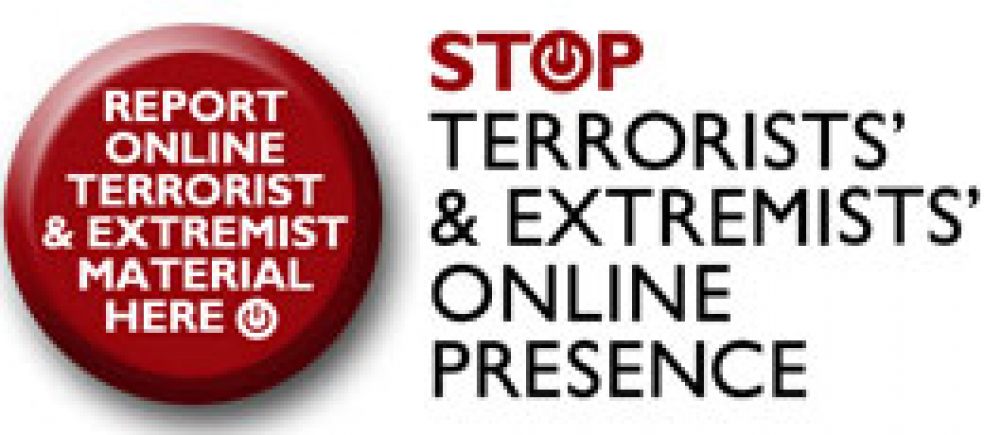
Public urged to report terrorist and extremist material online
Police forces nationwide are appealing for internet users to report harmful extremist and terrorist material when they see it online.
All week, police and partners have been using their social media channels to urge people to report material they suspect is extremist or terrorist by clicking on a distinctive red "STOP" button that can be found on their websites. STOP stands for Stop Terrorists' and extremists' Online Presence.
After clicking on the button, web users are quickly directed to a short, anonymous form at www.gov.uk/report-terrorism where they are asked to enter the address of the webpage where they saw the material.
The national Counter Terrorism Internet Referral Unit (CTIRU), which investigates the material, is today (Friday, 15 April) embarking on a 36-hour operation to secure the removal of the material as quickly as possible.
Since the CTIRU launched in 2010, it has prompted the removal of over 160,000 pieces of extremist and terrorist material, much of which was flagged by members of public.
On average, it instigates the removal of over 1,000 pieces of material a week, including terrorist propaganda videos, pictures of beheadings, bomb-making instructions and speeches calling for racial or religious violence.
The CTIRU proactively trawls the web every day, looking for and seeking the removal of the material which is a source of inspiration for extremists, terrorists and is often a means of radicalising vulnerable people.
Earlier this month, 25-year-old Junead Khan from Luton was convicted for plotting to kill soldiers in the home counties. Detectives investigating Khan found that he had accessed and shared Daesh propaganda videos, and instructions for making a suicide bomb online in the lead up to his planned murderous attack.
In the next 36 hours, community members, charity representatives and an array of other partners will take part in workshops with the CTIRU to discuss how they can work together with communities to remove more material.
Deputy Assistant Commissioner Helen Ball, Senior National Coordinator for Counter Terrorism Policing, said: "Tackling extremist material is important to protect the public and prevent offences that incite or promote terrorism and extremism.
"The internet and social media provide many opportunities for those with extreme views to target young or vulnerable people, and their methods are constantly evolving, from using new phone apps to hijacking popular hashtags in order to reach wide audiences.
"The Counter Terrorism Internet Referral Unit has put considerable effort into prompting the removal of terrorist and extremist material. We know that communities are very concerned about this material - and communities defeat terrorism, which is why police and the public will continue to work together on this.
"Police depend on information from the public in our efforts to help keep us all safe and we are asking anyone who has concerns about online content to report it by clicking the red STOP Terrorists’ and Extremists’ Online button."
Minister for Internet Safety and Security Baroness Shields said: “I applaud the world-leading work of the police Counter Terrorism Internet Referral Unit and would urge the public to report terrorist and harmful extremist content when they see it.
“Everyone has the ability to recognise hatred and intolerance online. The internet was developed to bring people together, it is vital we work in partnership to stop those who exploit it to drive us apart.”













